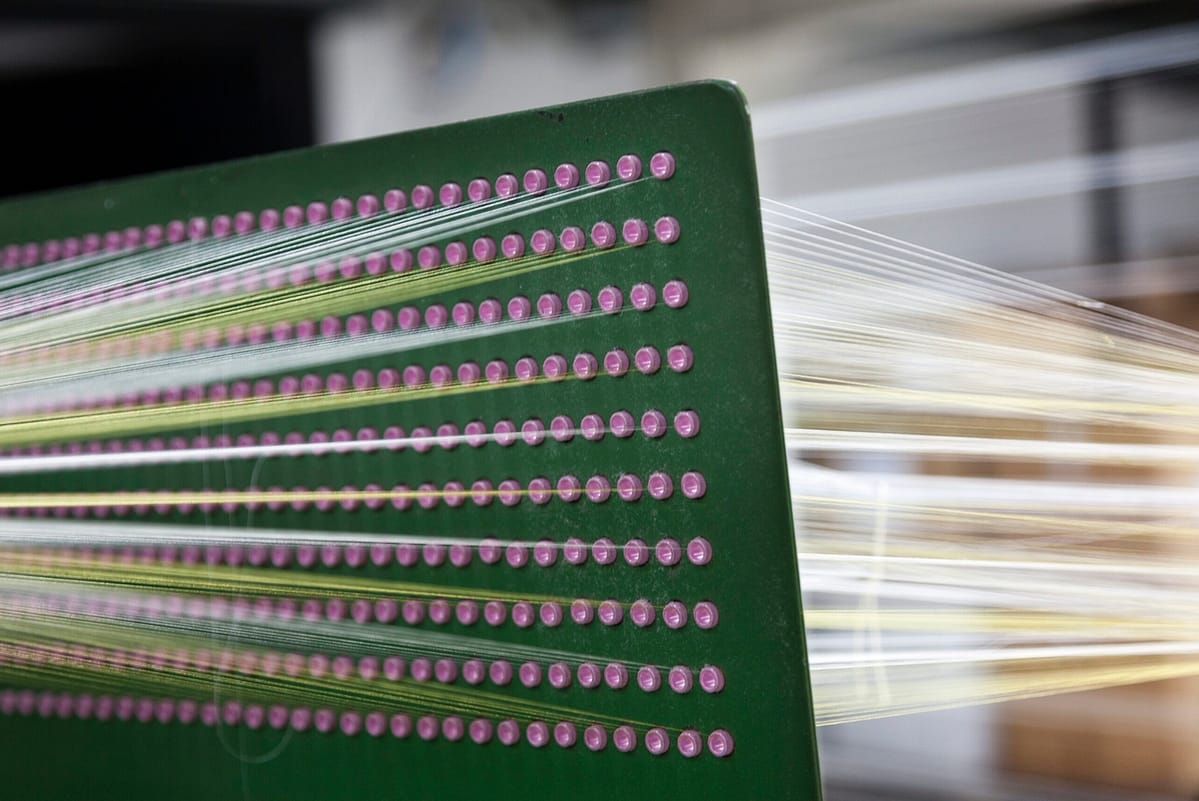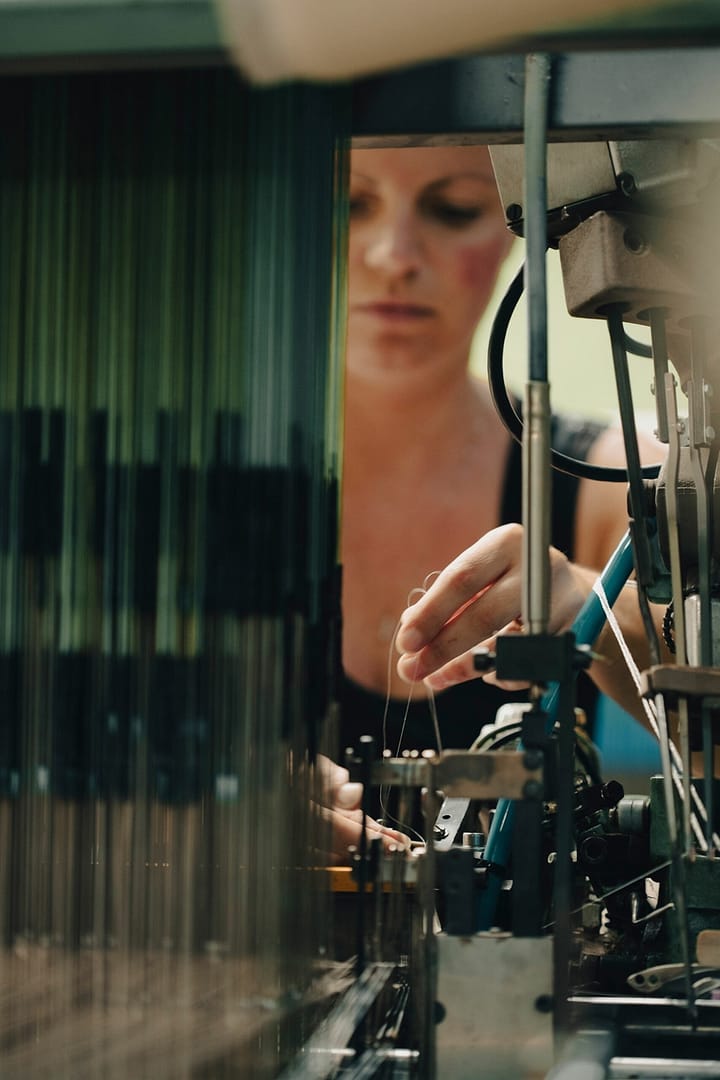Clerici Tessuto has always been guided by the principles of environmental, social and ethical sustainability.
In line with this commitment, we work to provide our customers with the highest quality products, responsibly manufactured.
We integrate social, environmental and ethical aspects into all our activities.
Our fabrics show how creativity, passion, quality, innovation and sustainability can be harmoniously combined in a continuous attention to beauty.
Our commitment to sustainability finds expression in our corporate culture, in the respect and enhancement of people, in the protection and safeguarding of the environment, in the enhancement of the entire production chain and in the support of the local community in which we operate.
In October 2022, we have presented our first Sustainability Report. The report describes the Group’s activities through the results achieved in 2021, illustrating its commitment to environmental and social sustainability with the utmost transparency.
Browse the Sustainability Report 2024
Download the main documents related to the Clerici Tessuto Group’s commitment to sustainability:
How We’re Making Change

Governance and business integrity
Clerici Tessuto’s governance is guaranteed by two fundamental bodies: the Board of Directors, for the management of the activities, and the Statutory Auditors, for the safeguarding of the company’s business integrity.
Our Code of Ethics, in force since 2017 and recently updated, attests how Clerici Tessuto is committed to ensuring a healthy, safe and productive work space; respects the Statute of the Workers; applies the National Labour Collective Agreement for the industry; complies with applicable regulations on overtime; does not hire minors; respects the confidentiality of information in its relations with employees, customers and suppliers; recognises the right of the employees to join trade unions and fights against corruption in the work place.

Corporate Culture and People
Clerici Tessuto has always had a corporate culture centered on the enhancement of its human capital.
The company promotes an inclusive working environment, fights all forms of discrimination in its corporate policies and practices and supports lifelong learning projects to improve the development and updating of the skills of company personnel.
A third-party audit has certified that Clerici Tessuto meets all requirement of the Workplace Condition Assessment (WCA) Achievement Award.

Community and Education
For over 10 years, the Company has been promoting and supporting work-related learning programmes through the collaboration with upper secondary schools, vocational training centres and universities.
The Company’s commitment was awarded by Confindustria with the Bollino per l’Alternanza di Qualità (BAQ – Quality Work-Related Learning Stamp), awarded to those companies that stand out for offering high quality work-related learning programmes.
A project of particular importance is the work-related learning programme in collaboration with Fondazione Cometa for the Oliver Twist vocational school in Como. This learning programme developed around the educational and training potential of work was included in the list of 25 successful Italian cases selected and analysed in the research promoted by Sodalitas Foundation as part of the We4Youth work-related learning campaign and Pact4Youth European programme. The project, started in 2011, fosters flexible learning that directly connects school education with real work experience in a company.
Other relevant internship initiatives include the collaboration with Central Saint Martin’s University in London and Accademia Costume & Moda in Rome, which both allowed Clerici Tessuto to welcome young students and offer them a work experience.

Product responsibility throughout the supply chain
Clerici Tessuto is aware of the important role played by the whole value chain in the finished product in terms of high quality, sustainability and reliability standards and it acts accordingly.
The Company’s commitment towards its sustainable goals is tangible from the very beginning of the production process, and can be seen in the accurate and thorough selection of suppliers.
When choosing suppliers, particularly the raw materials providers, the Company selects national and international vendors compliant to the several criteria required to be part of a complex and high performing supply chain, including sustainability aspects.
The different processing phases (from yarn to fabric) are carried out by the companies of the Clerici Tessuto group or by suppliers located mainly in the Como district, with whom the company has corporate relationships or has consolidated over time network contracts, implementing an integrated supply chain management. Particularly relevant is the membership of the company in the Filo d’Oro (Golden Thread) network, a fashion micro-supply chain inside the silk textile production chain in the Como area.
Being a member of this network allows the company to benefit from the skills, reliability and flexibility of the other businesses involved in the project, as they specialise in all phases of textile production, from processing to the finished product: warping, weaving, the ennoblement process, dyeing and finishing, and printing.
With its integrated supply chain, Clerici Tessuto also ensures a high level of product traceability, which is further monitored through audits carried out by certification bodies on a yearly basis.

Environmental protection
Environmental protection is a major focus of Clerici Tessuto’s journey towards Sustainability. The commitment of the company to promote processes oriented towards sustainability is reflected in the use of technologies and production methods with low environmental impact.
To this regard, Clerici Tessuto has been working towards achieving certifications of ISO standards, including the ISO 14001 – Environmental Management Systems standard, mainly aimed at the monitoring and reduction of the environmental impact of its activities.
Clerici Tessuto’s commitment to the environment has focused on three main areas:
- Energy and water consumption
- Waste management and circular economy projects
- Energy efficiency initiatives
